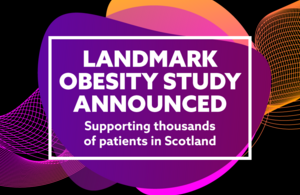Health experts in Scotland are starting a major project to understand how weight-loss drugs work in everyday life. The initiative focuses on people living in the country’s toughest neighbourhoods. A fresh grant from the central government will help set up this large-scale effort that could change how obesity is managed across the UK.

What the Project Plans to Achieve
The research, called the Scotland CardioMetabolic Impact Study or SCoMIS, will bring together doctors, universities, and drug companies. Between three thousand and five thousand adults from various parts of Scotland will join the trial. Many of them come from places where money is tight and health problems are common.
Obesity often leads to serious conditions such as heart trouble, diabetes, and certain cancers. By learning more about modern medicines, the team hopes to cut long waiting lists in hospitals and keep people healthier for longer. Early calculations suggest the NHS could save large sums every year if the treatments prove successful in real settings.
How the Money Will Be Used First
An opening amount of six hundred and fifty thousand pounds has been handed over to prepare everything properly. The University of Glasgow is leading the work alongside Novo Nordisk, a well-known medicine maker, and IQVIA, which specialises in health data and trials. Doctors from the universities in Dundee and Edinburgh are also giving their time and knowledge.
During the coming months, the group will talk to patients and family doctors to decide the best way forward. Community pharmacies and local clinics will play a big role in reaching out to those who need help most. All plans will be checked carefully by independent experts before the main phase starts next year.
Why Scotland’s Poorest Areas Matter
More than one in three grown-ups in low-income parts of Scotland carry extra weight that harms their health. These same neighbourhoods often see fewer chances for good jobs, fresh food, or safe places to exercise. The study wants to make sure new treatments reach exactly these groups instead of only city centres or wealthier towns.
Health Innovation Minister Dr Zubir Ahmed, who works as a surgeon when he is not in government, spent a day in Scotland meeting the planners. He stressed that prevention must come before cure. As someone who represents Glasgow in Parliament, he sees the daily struggle caused by weight-related illness.
Science Minister Lord Vallance pointed out that Scotland already has strong science teams and top hospitals. Joining forces between public services and private firms can speed up fresh ideas. He believes better weight control could help people return to work and feel proud of their daily lives again.
Technology and Patient Support
Modern computer tools will track how each person responds to the medicine. Artificial intelligence will spot patterns in weight change and spot early signs of trouble. Secure apps may remind patients to take doses or attend check-ups. All personal details will stay private under strict rules.
The drug under review belongs to a family that copies natural body signals. These signals tell the brain when to feel full and keep blood sugar steady. Many users notice they eat smaller portions without forcing themselves. Slow stomach emptying also helps control hunger between meals.
Voices from the Team
Professor Jason Gill from Glasgow University heads the research group. He explains that while healthy eating and activity remain vital, new medicines give doctors another strong option. Leaving things as they are would only widen the gap between rich and poor areas.
The first stage will lock down exact rules for choosing participants and measuring results. Once everything is ready, the larger trial will answer four key questions. First, can local clinics deliver the treatment without extra strain? Second, how much weight do people lose and how does daily life improve? Third, do fewer hospital visits follow? Fourth, can better health mean steadier jobs and less time off sick?
Tim Sheppard from IQVIA says the project blends cutting-edge data with caring support. Faster access to proven drugs in ordinary GP surgeries could raise standards for everyone. Sebnem Avsar Tuna at Novo Nordisk adds that obesity affects far more than the number on a scale; it touches hearts, joints, and mental wellbeing.
Professor Naveed Sattar, who chairs the national obesity goals programme, welcomes the focus on real communities. Too many past studies stayed inside hospitals or wealthy districts. Testing medicines where the need is greatest will give trustworthy answers for future policy.
Joint Effort Between Governments
Both the UK and Scottish governments back the work. Scotland Office Minister Kirsty McNeill calls it a chance to put Scottish skill on the world map. Public Health Minister Jenni Minto says placing patients first builds fairer care for all.
Extra funds may follow until the end of the decade if early results look promising. Every step will go through open competition and expert review to keep standards high.
In short, this Scotland obesity study marks a practical step toward turning research into everyday help. By listening to local voices and using smart technology, the team aims to shrink health gaps and ease pressure on the NHS. Residents in harder-hit postcodes stand to gain the most from what is learned.
